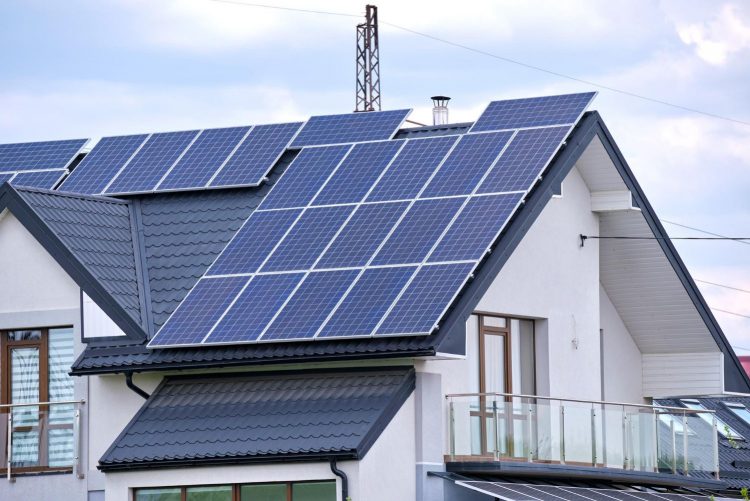As solar battery prices continue to drop, more and more people are considering installing a solar battery storage system in their homes. However, the upfront cost of purchasing a solar battery can be a major barrier for many homeowners.
This has led to the emergence of different pricing models, including solar battery leasing and solar battery ownership. In this article, we will explore the benefits and drawbacks of each pricing model to help you make an informed decision.
Solar Battery Ownership
Solar battery ownership is a popular option for homeowners and businesses looking to invest in clean energy solutions. Here are the benefits and drawbacks of this pricing model.
Benefits of Ownership
One of the biggest benefits of owning a solar battery is that you can save money in the long run. While the upfront costs of purchasing and installing a solar battery may be higher than leasing, you’ll ultimately own the system outright and won’t have to make ongoing lease payments. This means that you’ll be able to keep more of the savings from using solar energy over time.
Another benefit of ownership is that you have more control over the maintenance and upkeep of your solar battery. When you lease a solar battery, the leasing company is typically responsible for maintenance and repairs. But when you own the battery, you can choose your own maintenance schedule and service providers.
Drawbacks of Ownership
One of the main drawbacks of owning a solar battery is the upfront cost. Purchasing a solar battery can be a significant investment. And not everyone has the funds to pay for it outright.
Additionally, owning a solar battery means that you’ll be responsible for any repairs or replacements that may be necessary over time. This can be a challenge for those who don’t have the financial resources to cover unexpected costs.
Another potential drawback of ownership is that you may miss out on future advancements in solar technology. If you purchase a solar battery today, it may become outdated or less efficient in the coming years as new models are released. With a lease, you have the option to upgrade to newer models at the end of your lease term.
Solar Battery Leasing
Solar battery leasing is a popular alternative to outright ownership that allows customers to access the benefits of a solar battery without the upfront costs.
Benefits of Leasing
The main benefit of leasing a solar battery is the lower upfront cost. Because you’re not paying for the battery outright, you can start benefiting from solar energy without the need for a large investment.
Another advantage of leasing is that the leasing company will usually take care of maintenance and repairs, so you won’t have to worry about those costs. Additionally, some leasing programs may allow you to upgrade to a newer, more efficient battery once your lease period is up.
Drawbacks of Leasing
The main drawback of leasing a solar battery is that you won’t own the battery outright, which means you won’t have full control over it. Additionally, because you’ll be paying a fixed monthly fee, you won’t have the opportunity to benefit from any cost savings that might come from owning a solar battery outright.
Leasing may also come with certain restrictions, such as limitations on where and how the battery can be used. Hence, it’s important to carefully read and understand the terms of the leasing agreement before signing up.
Comparing Ownership and Leasing
When it comes to deciding between solar battery ownership and leasing, there are a few important factors to consider.
1. Cost considerations
One of the most significant differences between owning and leasing a solar battery is the cost. Purchasing a solar battery outright can be a significant investment upfront, whereas leasing can offer a lower monthly payment or a pay-as-you-go option.
Additionally, owning a solar battery means that you can take advantage of any tax incentives or rebates that are available, which can help offset the cost of the initial investment.
2. Maintenance and repairs
Another factor to consider is maintenance and repairs. When you own a solar battery, you’re responsible for all maintenance and repairs, which can be costly and time-consuming. On the other hand, when you lease a solar battery, the leasing company typically covers any maintenance and repairs that are necessary during the lease term.
3. Resale value
Finally, it’s worth noting that solar battery ownership typically comes with the benefit of resale value. If you decide to sell your property or upgrade to a new solar battery, you can sell your existing solar battery to recoup some of the initial investment. With leasing, you don’t have this option, and you’ll need to return the battery to the leasing company at the end of the lease term.
Final Thoughts
Both solar battery leasing and ownership have their own benefits and drawbacks. The best choice depends on individual needs and circumstances. Leasing may be more attractive for those who want to avoid the upfront cost and responsibility of ownership. But ownership provides long-term cost savings and greater control over the system. Ultimately, the goal of both options is to provide a reliable and sustainable source of energy for homeowners and businesses alike.









